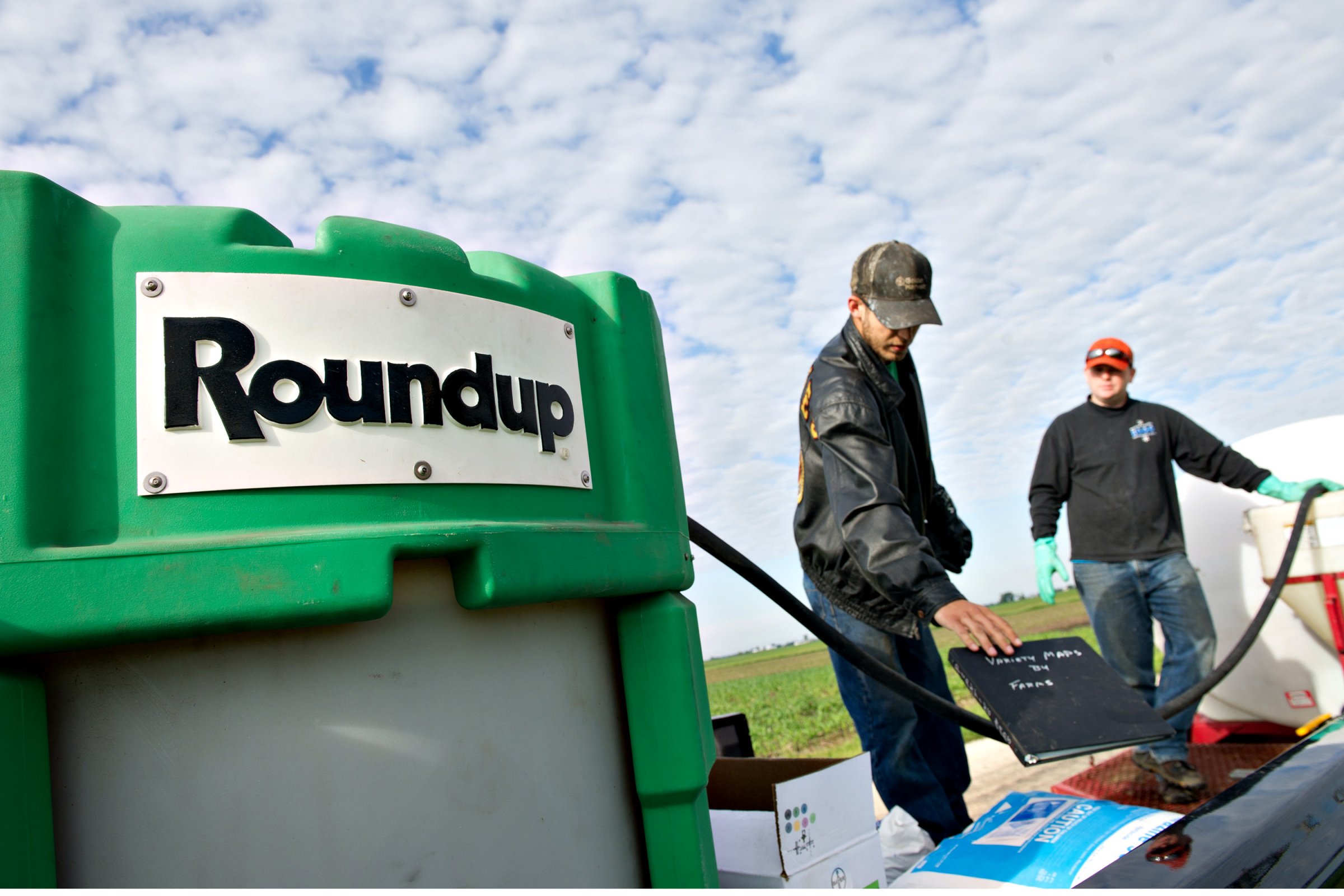
A group of environmental health researchers is calling for federal regulators to reassess the safety of the world’s most commonly used herbicide following a series of news stories damaging to the chemical’s manufacturer.
The researchers writing in the Journal of Epidemiology and Community Health argue that the chemical glyphosate, sold around the world as Roundup by Monsanto, should be subject to further safety review about whether it causes cancer. U.S. and European regulators have determined that it likely does not, while a United Nations body has found that it likely does.
The researchers behind this week’s paper argue that the debate over glyphosate remains unsettled and requires further review. The recommended assessments include better testing of glyphosate levels in the human body and improved tracking of occupation exposure for people in particularly vulnerable professions. “The current safety standards are outdated,” they write, “and may fail to protect public health and the environment.”
The essay does not address recent headlines but it follows closely a disclosure of some of the company’s internal emails, which were unsealed by a federal judge earlier this month. The emails suggest that Monsanto had written some research for publication by the Environmental Protection Agency (EPA), according to a New York Times report. In other emails, company officials also say that they would try to kill a separate review of the chemical by the Department of Health and Human Services.
Read More: How Activists Are Restricting Use of a Major Pesticide
In a statement emailed to TIME, representatives from Monsanto said: “These lawsuits have no merit. In an attempt to mischaracterize the safety of glyphosate, the plaintiffs’ attorneys are sifting through millions of pages of internal Monsanto documents and emails, cherry picking comments, and taking those comments out of context to paint an inaccurate picture of glyphosate.”
In the new journal report, the researchers reference the issue of industry influence, noting that industry scientists have conducted much of the relevant research. “It is incongruous that safety assessments of the most widely used herbicide on the planet rely largely on fewer than 300 unpublished, non-peer reviewed studies while excluding the vast modern literature on glyphosate effects,” the study authors write.
The EPA issued a report in September suggesting that glyphosate is “not likely” to cause cancer. That determination is consistent with the view of the European Food Safety Agency, the relevant regulator in the European Union. Still, many scientists remain concerned. The International Agency for Research on Cancer, a branch of the World Health Organization, found the chemical to be a “probable human carcinogen” in 2015.
More Must-Reads from TIME
- How Donald Trump Won
- The Best Inventions of 2024
- Why Sleep Is the Key to Living Longer
- Robert Zemeckis Just Wants to Move You
- How to Break 8 Toxic Communication Habits
- Nicola Coughlan Bet on Herself—And Won
- Why Vinegar Is So Good for You
- Meet TIME's Newest Class of Next Generation Leaders
Write to Justin Worland at justin.worland@time.com